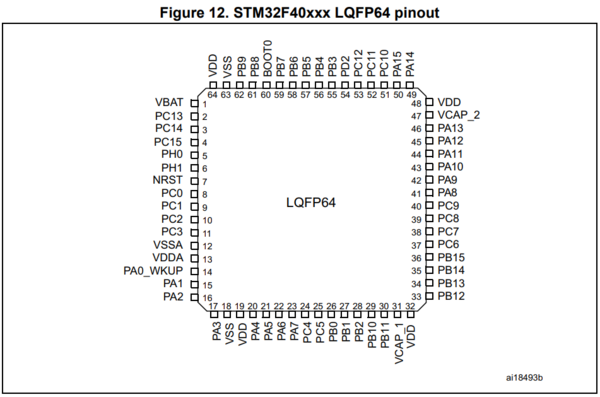Difference between revisions of "General-purpose input/output (GPIO)"
Jump to navigation
Jump to search
| Line 1: | Line 1: | ||
[[Category:STM32]][[Category:STM32 Hardware]][[Category:STM32 Documentation]][[Category:STM32 Development]]{{metadesc|STM32 GPIOs}}[[File:FidoKey rev. a - top view.jpg|thumb]] | [[Category:STM32]][[Category:STM32 Hardware]][[Category:STM32 Documentation]][[Category:STM32 Development]]{{metadesc|STM32 GPIOs}}[[File:FidoKey rev. a - top view.jpg|thumb]] | ||
A [[general-purpose input/output]] (GPIO) is an uncommitted digital signal pin on an integrated circuit or electronic circuit board which may be used as an input or output, or both, and is controllable by the user at runtime. | A [[general-purpose input/output]] (GPIO) is an uncommitted digital signal pin on an integrated circuit or electronic circuit board which may be used as an input or output, or both, and is controllable by the user at runtime. | ||
| + | |||
| + | Looking at a [[STM32]] [[MCU]] package we will notice a number of similarly named pins: | ||
| + | |||
| + | <div class="res-img"> | ||
| + | [[File:STM32F40xxx LQFP64 pinout.png|600px]] | ||
| + | </div> | ||
Revision as of 02:30, 16 October 2024
A general-purpose input/output (GPIO) is an uncommitted digital signal pin on an integrated circuit or electronic circuit board which may be used as an input or output, or both, and is controllable by the user at runtime.
Looking at a STM32 MCU package we will notice a number of similarly named pins:

